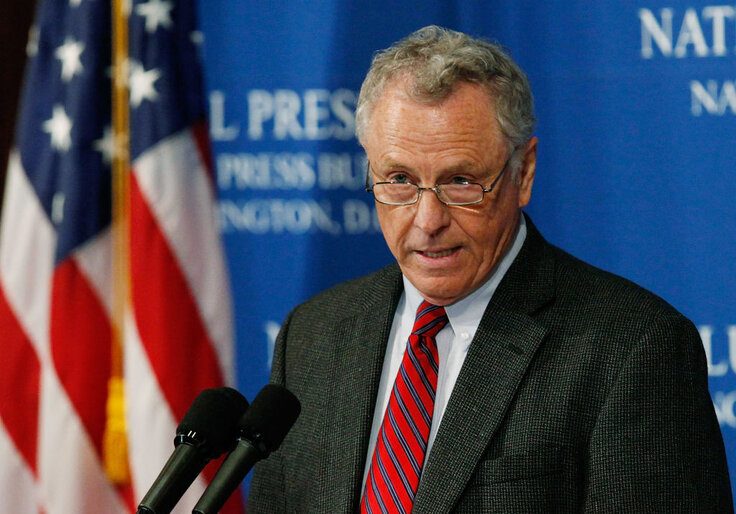The Southern Poverty Law Center (SPLC), a progressive nonprofit whose leadership was recently rocked by allegations of racism and sexual harassment, maintains over $160 million in offshore accounts, new filings show.
The SPLC's most recent audited financial statement reveals the group had $162 million in a variety of offshore funds as of October 21, 2020. The group's tax forms show it took in $108 million in donations between November 2019 and late October 2020, an $11 million increase from the previous year. Contributions to the group dipped in 2019 after reports surfaced that allege SPLC founder Morris Dees and other leaders allowed sexual harassment and racial discrimination against minority staffers.
The SPLC is now sitting on $588 million in net assets, $45 million more than the year before. The group did not respond to a request for comment on its investments.
Conservatives have scrutinized the SPLC for its massive war chest, which is aided by offshore investments. Overseas investments are legal and common among institutions such as universities with large endowments, and the SPLC maintains that their holdings are normal. But similar nonprofits, like the American Civil Liberties Union, do not invest in non-U.S. funds.
The SPLC racked up prominent civil rights victories decades ago before turning its attention to hate groups. In recent years, the group has focused mainly on the "Intelligence Project," which has placed conservative organizations on lists of hate groups alongside the Ku Klux Klan. In 2012, a gunman targeted the Family Research Council after seeing it on the SPLC's website.
The group has since gotten involved in issues including mass incarceration, policing, and voting rights. In 2019, the center launched a Voting Rights Practice Group to "dismantle state-sponsored voter suppression across the Deep South" that has worked with allied organizations in Florida.
The SPLC also works to influence school curricula through its Teaching Tolerance program, which last month was renamed Learning for Justice. The SPLC's education arm works with schools and students to "uphold the mission" of the SPLC and act as a "catalyst for racial justice in the South and beyond" by providing free resources to teachers, administrators, and counselors to "supplement the curriculum, to inform their practices, and to create inclusive school communities."
Learning for Justice's reach expands far outside of the South. The group partners with nonprofits such as the Mid-Atlantic Equity Consortium, an antiracist auditing center funded almost entirely by taxpayer dollars that operates in 15 states and territories. The consortium has become one of the country's most prominent racism audit centers and maintains ties to the Department of Education.
The SPLC has also partnered with big tech companies such as Amazon, Facebook, Google, Twitter, and PayPal to identify "hate groups." It is also part of an unverified "hate crime" database used by dozens of media outlets, a project that was launched with cash from liberal billionaire George Soros's Open Society Foundations.
Despite the SPLC's long-running mission of identifying and tackling racism, its own leaders were forced out after racism accusations surfaced in 2019. SPLC founder Morris Dees was fired and longtime president Richard Cohen stepped away after staffers alleged leadership was racist against its minority staffers.
